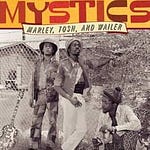Greetings Superstars!
I think you have to like bouncing around in order to truly appreciate ska music. It’s a bouncy sound. I’ve talked about being a fan of Dave Wakeling and the Beat, the English Beat, and General Public. Back in my college days in San Diego, I had several opportunities to hear Wakeling perform live and had a ball bouncing around the dance floor to “Mirror in the Bathroom” and “Save It for Later.” The Beat released their debut album, I Just Can’t Stop It, in 1980—spreading 2-Tone style ska beyond their Birmingham, England, stomping ground. How did ska—born into Jamaica’s musical cradle in the 1950s and ‘60s—travel all the way to the U.K.? Great question.
Originally, calypso artists in Jamaica began adding R&B elements to their songs, creating a distinctive, upbeat sound that became known as ‘ska.’ For a sense of the rhythm, here’s “Do the Reggae” by Toots and the Maytals (1968):
So bouncy! Did you know that the title of this song gave a name to reggae music?
By 1970, most people in the U.K. listened to music on the radio, offering a way to hear tunes from other parts of the world. It didn’t even take a full decade before ska had bounced its way firmly into Britain. English kids like Wakeling and bandmate Ranking Roger put their own spin on it with the 2-Tone movement, which threw a dash of punk rock into the recipe. At the time, a label called 2 Tone Records produced bands that had Black and white members—an effort to discourage racial tension—and the name stuck. Other than the Beat, acts included the Specials, and Madness.
Look at these kids having the time of their lives:
I wonder if they appreciated how much fun they were having at the time. I hope so.
Now, these eras of ska were before my time. By the time I came around, my mother and her friends were listening to Bob Marley on vinyl in dwellings scraped from crumbling sugar mills. The first time I registered ‘the English Beat’ was in the late ‘80s when a yachtie kid we called ‘Terminator’ said it was his favorite band. He had a French dad, so I chalked it up to being a European thing.
Then, in the early ‘90s, I went to college in San Diego, California, and discovered the irreverent joy of Third Wave ska a.k.a. ‘Orange County ska.’ Orange County is an affluent, suburban area of Southern California full of disenfranchised youth and endless sunshine—like if ska went to Club Med. These Stateside kids had access to Los Angeles recording and performing opportunities, and a strong sense a localism. What emerged were global superstars like No Doubt and Sublime.
I remember the first time that I heard No Doubt’s Gwen Stefani sing “Spiderwebs” on the radio. I had to pull my car over and listen because, as a young woman, I felt seen, but also because it was so epic:
No one could touch early ‘90s Stefani when it came to youthful cool.
Elsewhere in America, Third Wave ska had teens in a frenzy. Boston’s Mighty Mighty Bosstones brought back dapper suit coats (mostly in plaid) while steering ska more deeply into punk rock and even heavy metal. Throughout all of ska’s iterations, the fascination formula has remained the same: bouncy, irresistible beats—and teenage angst.
I think there is something to be said for feeling angry and having fun at the same time. Often, we don’t have much control over the former, but we can always choose to walk in the latter. Ska music is a spoonful of sugar in a difficult world, allowing us to face social issues without wallowing in the subsequent guilt and ick.
Here’s what I think:
As long as we keep dancing, we cannot be defeated.
What do you think about that? Do you agree that music can grease the wheels of humanity and compassion? Or, at least, make our sense of social responsibility bearable?
If you have a favorite ska song, I hope you play it this week for someone in your life!
If you don’t have a favorite, here are a few of mine:
“007 (Shanty Town)’ — Desmond Dekker and the Aces (1967)
“A Message to You Rudy” — the Specials (1979)
“Twist and Crawl” — the Beat (1980)
“Badfish” — Sublime (1997)
TTY! 💛












Share this post